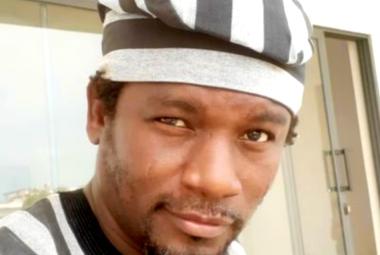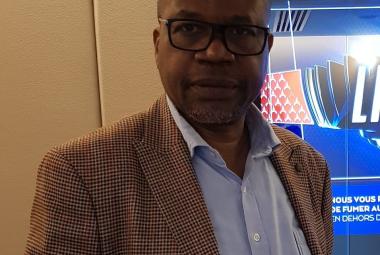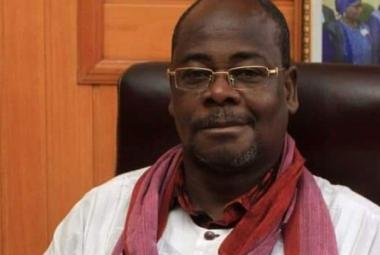On the sidelines of the April 25 commemorations, celebrating the Carnation Revolution, the President of Portugal, Marcelo Rebelo de Sousa, threw a big stone in the mud. By going against the tide of what the West thinks, in what it has from former colonial powers, but also and above all from its own political camp. On this occasion, he expressed his wish to see Portugal “pay the costs” of its crimes committed within the framework of Colonization. President Marcelo Rebelo de Sousa, through his statements, sparked an outcry and strong reactions in his country. Even the Prime Minister, Luis Montenegro, who is on the same political side as him, the Social Democratic Party, immediately spoke out against his profession of faith. And to chase it away, like an annoying fly, to indicate that neither his government nor those who preceded it will “pay the costs” of which the President of Portugal spoke.
As for Chega, the Far-right party of Portugal, it sharply castigated the declarations of President Marcelo Rebelo de Sousa in a press release through which he made it known that the said remarks on Colonization “undoubtedly represent a betrayal of the people Portuguese and its history”. In fact, we should not have expected the opposite. Because this is what all populism and all extremism are nourished by. By pure electoralism and stereotypes of the past.
Beyond the emotional or political criticisms against President Marcelo Rebelo de Sousa, one should not believe that this is a statement intended to create buzz. The professional and political career of this trained lawyer, Professor at the Faculty of Law of the University of Lisbon and renowned journalist, as well as his personal positions, clearly show that he is rarely on the wrong side of History. Better still, he knows very well the History of Colonization and its consequences on both the Colonized and the Colonizer. He, whose father was a minister and who was subsequently a member of the Constituent Assembly in 1975 and took part in the drafting of the Constitution of the Third Republic, after the Carnation Revolution. Which Revolution, orchestrated by young officers, was a bloodless coup d'Etat which put an end to 48 years of dictatorship and 13 years of colonial wars.
In Africa, the delicate and nagging question of reparations for the harm caused by former colonial powers to populations and countries is not a new debate. Far from it. But poorly conducted and in as much confusion as disunity, it has never been taken further than a simple debate among many others, even though it is just as highly and symbolically important and for the former colonized people and for former colonizers.
As I have already emphasized many times, and recently again, in one of the Interviews granted to me by Wonder Hagan from the Site https://globalsouthworld.com/:
“The President of Ghana, Nana Akufo-Addo, is absolutely right. We need to talk about reparations with the West for many things. But not only with the former colonizing countries of Europe. We must do the same thing with Arab countries, because the Arabs are the first to enslave black people. There was never any repair. Worse, there was never even an apology.
I must say that before President Nana Akufo-Addo, I remember that many others like the former President of Nigeria, Olusegun Obasanjo and his friend and brother the former President of Benin, Nicéphore Soglo, had spoken about it. Also. But I will tell you the truth, in any case it is my opinion, and I keep saying it: as long as the Countries of Black Africa do not have a Union, League or Community - it does not matter how they do or call it - they will never succeed in this fight. I take this opportunity to once again call on our heads of state and government for a Union of Black African countries beyond their membership in the African Union. The salvation of Black Africa and its struggles for its peoples is at this price.
And afterwards, we can talk about what is reparable or not, or how to repair the wrongs that Black Africa has suffered. And above all how Black Africa should do so that this never happens to it again... »
The intellectual and political elite should make no mistake about this. The Colonization of Africa is like a vein, at the center of a gigantic political exploitation by foreign dictatorial powers, which are in total war against the West and its political model which is Democracy. And this to the detriment of the African peoples themselves. With the ultimate objective of imposing on Africa military or civilian regimes that are just as dictatorial as they are far from respecting the will of their people. In short, by local servants in their pay both economically and politically, to use the rhetoric of a certain era that those under forty have not known.
At a time when all the great powers are trying to “Recolonize” Africa, the debate deserves to be held in a calm and responsible manner between Africans on the one hand and between Africans and Westerners on the other. Colonization and Neo-Colonization or the “Recolonization” of Africa have become issues that the current great powers of the world are definitely trying to use to their great advantage, depending on whether we are in one camp or in the other, it is important to remain very vigilant regarding the various forms it takes today, or even to criminalize them.
In the context of Colonization, it is far too easy for the heirs of the former colonial powers to brush aside the question of reparations for all the wrongs caused by the former colonies of Africa. And to say that they have nothing to do with the past of their Ancestors. That it's all in the past. Move along, nothing to see. And to be content to extend the hand of fraternity to them only by way of “reparation”. In certain cases, even this outstretched hand does not appear in the agendas when it comes to the Far Right which is spreading in Europe today and which is playing into the hands of a certain number of Populists or Extremists of Africa who take others for imbeciles try to present Neo-Colonizers to Africans as the best allies for a new Africa, the one promised to the great African Renaissance. One of two things: either one has a profound ignorance of the recent history of Africa, or one is totally manipulated and consciously in the service of our shameless manipulators. In short, one is dangerously irresponsible both for African Youth and for the Future of Africa.
As a colleague and compatriot, Charles Migan, says so well, in the specific case of the Governance of President Patrice Talon in Benin: “The State is a continuity; it cannot be managed in the absence of memory. The actions taken by the proponents of the present commit the guarantors of the future; as those of the initiators of the past impose themselves”. Our famous French colleague and writer, Edmond About, already said the same thing in another way more than a century before in one of his most famous reflections. Namely that: “We are the heirs of all those who have died, the partners of all those who live, the providence of all those who will be born”.
The former President of Burkina Faso, Captain Thomas Sankara, surprised more than one with his memorable speech in Addis Ababa during the work of the 25th Summit Conference of member countries of the OAU (now African Union) in during which he discussed at length this subject of Colonization Reparations. But after July 29, 1987, it had fizzled out. Some Heads of state resurrect it, from time to time, without gaining support or general enthusiasm. It is now high time to get down to it and work together with the former colonial powers to find areas of agreement. Not to settle or forget the past, but to, if not erase the resentments of past relationships, at least appease them in order to write new pages of History. It is now up to the Heads of State and Government of Africa to take up the question of Reparations in relation to the damage caused by Colonization to Africa and to treat it with a forward-looking vision. Of course, the West will never be able to truly repair the wounds caused by its Colonial past, but it can be more humane towards Africa. And that’s what this is about.
By Marcus Boni Teiga




















